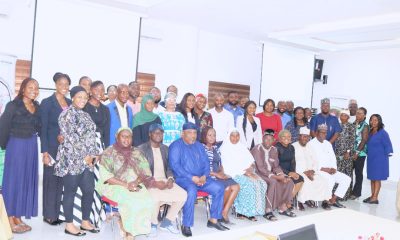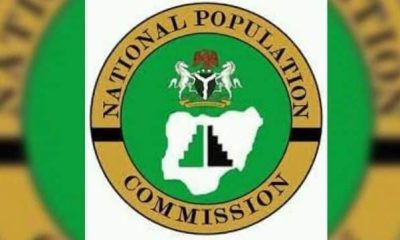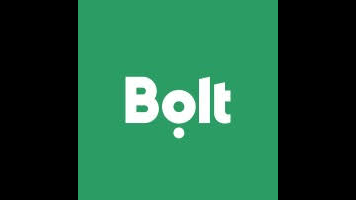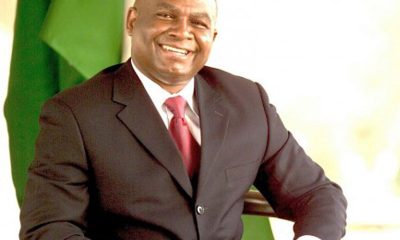Health
Tinubu Approves Five Million Free Eye Glasses for People with sight Impediments

President Bola Tinubu, on Friday in Abuja, declared his unwavering support for a partnership between the Federal Ministry of Health’s National Eye Health Programme and the Peek Vision Foundation to provide more than 5 million pairs of eyeglasses to Nigerians with sight impairments.
The President recounted how close to home his first intervention in eye health was as he made a pledge on behalf of the Federal Government during a courtesy visit by the Founder and CEO of Peek Vision Foundation and Co-Founder of the Vision Catalyst Fund, Prof.
Andrew Bastawrous.“My first experience was with my mother of blessed memory. She was ill and she could not recognise me. When I intervened, she was treated and given a pair of glasses.
“The next question she asked me was: I have you, and you are able to do this for me. What about those other women and their children who may not have somebody like you to intervene for them?
“So I made a promise to her that I will pursue the mass provision of eye care vigorously and that I would provide free eye screenings and surgeries to people because of that question my mother asked me and because of her passion to see others healed.
“We eventually impacted the eye health of millions of people in Lagos, and you could see their joy over the immediate sight enhancements when they were given a pair of glasses,” the President fondly recalled.
Highlighting the pressing need for improved eye health services in Nigeria, President Tinubu expressed concern about the more than 24 million Nigerians grappling with varying degrees of vision impairments.
“We must act now because sight and vision is critical to economic development and growth,” the President said, recalling his visionary “Jigi Bola” programme, which was initiated during his tenure as the Executive Governor of Lagos State in 2001 and provided free eye screening and surgery to Lagosians while setting a new precedent for proactive eye care initiatives in West Africa.
“I am in support of this initiative, and I will encourage the mobilisation of further commitment to see this through and to reach vulnerable people all across our country. Some parents may not pay attention to this, but I will, because I am touched,” the President concluded.
Expressing his commitment to the cause, Prof. Bastawrous said:
“Good vision unlocks human potential. It improves earning, learning, and wellness for individuals, communities, and countries.”
He shared his personal story and the transformative power of vision care:
“When I was 12, I was told by my teachers that I was clumsy and lazy, but the results of an eye exam explained I had very poor vision. And when I put on a pair of glasses, I saw the leaves on a tree for the first time, and my life completely changed and two weeks later, I was using my first pair of free eye glasses and I saw stars clearly for the first time.
“My grades improved, and the trajectory of my life completely changed, all because of a very cheap intervention that is 700 years old. Had that not happened, I would not be standing in front of you today. I would not be a professor, and I would not be involved in the work I am doing because sight gives opportunity,” the Peek Foundation CEO shared.
Professor Bastawrous noted that eye care is still chronically under-resourced in many countries, adding that the estimates in Nigeria show that 0.0002 percent of the health budget is spent on eye health.
“The good news is that President Tinubu has an excellent team in the health sector, and some of them have demonstrated tremendous leadership in the sector. What we would like to offer is to bring our Peek Vision methodology and platform to Nigeria to help unlock resources from multiple sources.
“In the countries where we have worked, Peek in Botswana unlocked 10 million dollars for the school programme, and in Kenya, 17 million Euros. Through the Vision Catalyst Fund, we have secured a donation of 200 million pairs of glasses, and we would like a significant proportion of that to come to Nigeria,” he concluded.
At the end of the event, the Coordinating Minister of Health and Social Welfare, Prof. Mohammed Ali Pate was joined by the Coordinator of the National Eye Health Programme, Dr. Oteri Okolo and the Director of Public Health, Dr. Chukuma Anyaike, as he presented a National Policy Document on Eye Health to the President.
Health
UNICEF Promotes Menstrual Hygiene for Girls

The United Nations Children’s Fund (UNICEF) has encouraged girls to embrace menstruation with pride and confidence, recognizing themselves as vital contributors to humanity’s sustainability.
Mrs Aderonke Akinwole, Social and Behavioural Change Specialist at UNICEF, gave the advice during an event on Wednesday organised with the Nigeria Girls’ Guild and Lagos State Primary Health Care Board.
The event was held to commemorate Menstrual Hygiene Day (MHDay) and was attended by students from both public and private schools across Lagos.
With the theme ‘Together for a Period Friendly World,’ the event aimed to raise awareness and promote dignity in menstrual hygiene.
“When a girl begins menstruation, it should be celebrated. It signifies her transition into womanhood and her ability to sustain life.
“They should be proud, and seek accurate, helpful information to remain safe, clean, and healthy during their period,” Akinwole said.
She emphasised that girls must not feel ashamed, as menstruation is a natural part of womanhood and a symbol of female dignity.
She urged the state government to increase sensitisation efforts and include menstrual hygiene education in school curricula, religious settings, and community platforms.
Akinwole also warned against stigmatisation, especially from boys, and called for boys to be educated to respect menstruation as part of girls’ lives.
“Girls should understand the menstrual cycle even before it starts. This should be part of health education in schools, churches, mosques, and communities,” she said.
She explained that girls need awareness on menstrual hygiene management and should know how to prepare for their periods in a healthy, informed way.
Mrs Honfor Adesola, Director of Education at Lagos State Primary Education Board, commended UNICEF’s support in promoting menstrual hygiene and addressing issues affecting girls.
Adesola highlighted that maintaining menstrual hygiene is vital in preventing infections and ensuring comfort throughout the menstrual cycle.
She noted that the event also helped to raise awareness about the Human Papillomavirus (HPV) vaccine available free in health centres across Lagos.
“We’re here to mark MHDay and to engage girls on HPV awareness. The state government has provided the vaccine, and sensitisation must continue,” she explained.
She encouraged girls to discuss the HPV vaccine with their parents to gain consent, ensuring protection against cervical cancer.
“The vaccine is safe, effective, and accessible in state facilities for girls aged nine to fourteen, but many have not yet been vaccinated,” she added.
Meanwhile, Ethagah Divine, Head Girl of New Estate Baptist Secondary School, Surulere, called on NGOs to provide sanitary pads for girls.
She urged more campaigns and rallies to distribute free menstrual products, like UNICEF did, to promote hygiene and dignity during menstruation.
Miss Emmanuella Azubuike, a student of the same school, expressed gratitude to UNICEF and partners for the impactful menstrual hygiene awareness event.
“This programme has expanded my knowledge on menstrual hygiene and HPV. More NGOs should support these campaigns to reach and educate more young girls,” she said. (NAN)
Health
Soludo’s Wife Establishes Pad Banks in 300 schools

Wife of Anambra State Governor, Dr Nonye Soludo, says she has established pad banks in 300 schools across the state as part of her pet project, Healthy Living Initiative.
Mrs Soludo disclosed this in a message in Awka on Wednesday to mark the 2025 World Menstrual Hygiene Day.
She said that the initiative was her own approach to helping school girls whose academic focus could be affected during menstruation and related emergencies.
Mrs Soludo stressed the need to provide immediate solutions for menstrual emergencies in schools, so that girls caught off guard could confidently rely on the pad banks.
“Official data say that an estimated 37 million women and girls in Nigeria are unable to afford sanitary pads and only rely on unhygienic alternatives.
“The data reinforce World Health Organisation and United Nations Children’s Fund finding that poor water, sanitation and hygiene infrastructure hinders safe and dignified menstruation for women and girls.
“Other data say that only two in five schools globally offer menstrual health education and just one in three have bins for menstrual waste.
“These figures challenge key stakeholders to find practical solutions to address the root of the problem while the situation remains reversible.”
She called for intensified campaign to reach more women and girls currently facing menstrual hygiene challenges.
The governor’s wife noted that the growing number of women, especially girls, in urgent need of menstrual support makes it essential for stakeholders to re-strategise their campaign approach.
According to her, menstrual health remains the right of every girl-child.
She encouraged girls at the designated schools participating in the pad bank project to use the supplies with confidence.
Mrs Soludo assured them that her NGO was fully committed to restocking any of the pad banks that run out of sanitary products.(NAN)
General News
More Recognitions, Honor for Ogbodo, Receives Peace Ambassador, Ministerial Award for Outstanding Service

By David Torough, Abuja
Medical Director of Lydia Memorial Hospital in Okpokwu, Benue State, Dr. Mark Ogbodo has once again been honored for his exceptional service to humanity.
This time receiving the prestigious title of Peace Ambassador and a Ministerial Award for the Most Dedicated, Committed and Hardworking Hospital in Benue State.
The honours were bestowed by the National Association of Nigerian Youths Ambassadors for Peace Initiative (NANYAPI) in recognition of Dr.
Ogbodo’s bravery, dedication, and unwavering commitment to medical service delivery in Okpokwu Local Government Area, Benue State, and Nigeria at large.Presenting the award, the President of NANYAPI, Comrade Aji Abraham, described Dr.
Ogbodo as a role model whose leadership and selfless service have distinguished him as a beacon of peace and a symbol of hope. He commended Dr. Ogbodo’s outstanding managerial skills and humanitarian spirit, which he said inspired the association to honour him.The event, held at Lydia Memorial Hospital, drew friends, well-wishers, and dignitaries from various sectors. In a welcome address on behalf of the hospital’s management and staff, Miss Victory Oche expressed heartfelt appreciation for the presence of the association’s leadership and delegates, as well as supporters of Dr. Ogbodo.
“May our purpose of gathering here today, which is to celebrate and honour our mentor and leader, Dr. Mark A. C. Ogbodo, for his unwavering and relentless contributions to humanity and nation building, be fruitful,” she said.
In his acceptance speech, Dr. Ogbodo expressed profound gratitude for the recognition, stating that the award had deeply touched him and would further motivate his advocacy for peace and service to humanity.
“I am deeply humbled and honoured to receive this award,” he said. “It means a lot to me as it acknowledges contributions I never knew were being noticed. This recognition will further spur me to continue promoting peace, unity, and development.”
He urged fellow peace ambassadors to embody the values of integrity, neutrality, and positive engagement. “Tarnish no image. Blackmail no opponent. Build bridges across tribes, cultures, and political divides. Serve as true ambassadors of peace,” he urged.
Dr. Ogbodo pledged continued support for NANYAPI and reaffirmed his commitment to peacebuilding efforts across Nigeria.
The ceremony also featured goodwill messages from traditional leaders, security officers, youth leaders, and the hospital staff, including HRH Chief Mark Barron Onah, Ward Head of Akpodo Community; SP Okoliko, DPO of Ugbokolo Division; Hon. Andrew Ameh, Youth Leader of Amejo Ward; Inspector Ogbaka of Ugbokolo Police Division; and staff of Lydia Memorial Hospital.





















